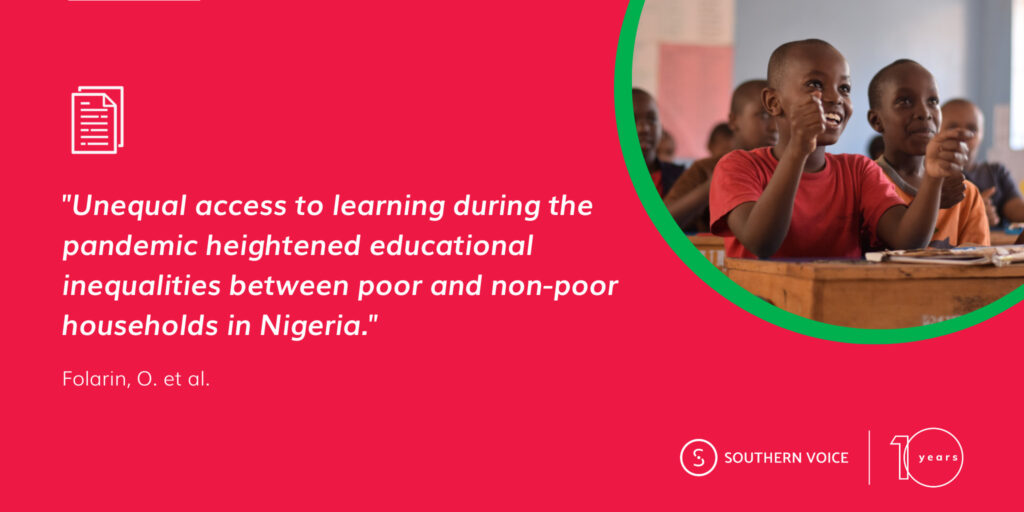COVID-19 and rising educational Inequalities: Evidence from Nigeria
This study unpacks the impact of the COVID-19 pandemic on educational inequalities and related education policy measures in Nigeria. Focusing on primary education, the study aimed to: (i) outline the state and dimensions of educational inequalities in Nigeria before the pandemic; (ii) understand the impact of COVID-19 on student learning performance; (iii) evaluate education-related pandemic measures and their impact on educational inequalities; and (iv) provide policy recommendations on how existing policy responses can be improved to reduce educational inequalities.
Using both quantitative and qualitative data, the study shows that educational inequalities increased during the pandemic across vulnerable groups, particularly low-income families, and children in rural areas. The results reveal a distinct pandemic-related learning loss among students. The dip in performance during the pandemic can be attributed to factors such as prolonged school closures, increased student leisure time, compromised nutrition, and lack of guidance from teachers.
Five key recommendations are made to build resilience in the educational sector and restore progress towards achieving SDG 4 (quality education), namely to: (i) upscale the accelerated learning programme; (ii) increase investment in communication and digital infrastructure; (iii) integrate digital learning into teaching; (iv) invest in adult education programmes; and (v) upscale teachers’ skills.
This paper was first published by the Southern Voice. Click here to read more


 English
English
 Arab
Arab
 Deutsch
Deutsch
 Português
Português
 China
China




